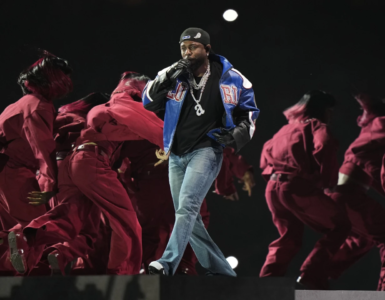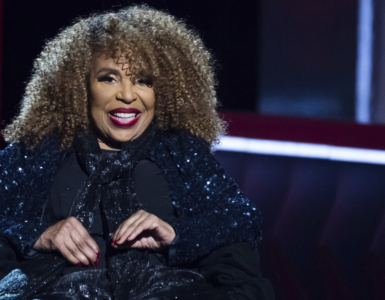Nov. 5’s election results have left many Americans feeling discouraged. With a second Trump presidency looming, growing threats to abortion access, LGBTQ+ rights, immigrant rights and worker’s rights have pushed some to question: “What now?”
If you are looking for resources and solutions beyond the ballot box, engaging with local grassroots organizations is a good way to help your community directly.
It can be a great way to build valuable connections and resources within the community and to help neighbors who are most vulnerable to the policies of Project 2025.
Here are six D.C.-area organizations invested in community care and mutual-aid-based support.
Food Not Bombs DC logo (Courtesy/ Food Not Bombs DC Facebook)
Food Not Bombs is a free meal collective with over 1,000 locations globally. Established on the East Coast in 1980, the all-volunteer organization has been around for over 40 years.
All meals are prepared by volunteers, either in their own homes or donated kitchen space, using food that would have otherwise been discarded. They have historically provided meals to protestors and victims of humanitarian disasters, such as 9/11 and, more recently, Hurricane Helene.
The Food Not Bombs D.C. chapter regularly gives out vegetarian and vegan meals to local unhoused communities. They do stationary food distribution at McPherson Square every Saturday at 2:30 pm.
Currently, they are also petitioning against DC Public Library’s new anti-houseless policies, which would prevent people from sleeping outside of city libraries and block access to services such as WiFi after hours.
HIPS DC’s harm reduction vending machine provides free, safe supplies for drug users. (Courtesy/ University of Maryland).
Location: 906 H Street NE, Washington, D.C. 20002
HIPS is an organization centered around the health and rights of communities impacted by sex work and drug use. They provide non-judgemental harm reduction services, along with advocacy and community engagement. Much of their work focuses on DC’s LGBTQ+ and unhoused communities.
Their services include:
- A drop-in center with showers, laundry, community lunch, community computers, on-site mental health services, medical care and treatment, housing support, an evening clinic and needle exchange services.
- Support groups for drug maintenance, goal setting, medication-assisted therapy and housing coordination.
- A mobile outreach van that does needle exchange, condom distribution and harm reduction counseling.
How to get involved:
- Open volunteer nights are hosted every second Wednesday of the month.
- Volunteer positions
- Positions are available for their outreach van, 24-hour crisis hotline, and community engagement.
Founders of Harriet’s Wildest Dreams (Courtesy/ Harriet’s Wildest Dreams website)
Harriet’s Wildest Dreams is a Black-led community defense hub. Their work includes legal assistance, political and civic education, mass protests, organizing campaigns and community care.
They organize around the rights of those most at risk for state-sanctioned violence: Black people, unhoused people, sex workers, street vendors, immigrants and undocumented folks, poor people, disabled people, people with mental illness and queer and trans people.
Their work focuses on three fronts: Political defense, community defense, and legal defense
How to get involved:
- You can connect directly by submitting an interest form.
DC Abortion Fund aims to break down economic barriers for abortion seekers. They help pay for the abortion care of anyone living in or traveling to the DC area, with no eligibility requirements.
They largely fund this care through mutual aid, partnering with other abortion funds, national organizations, and clinics around the DMV to support their work.
DCAF provides access to healthcare, survivor support, and economic and educational resources.
Look for local resources here.
Common Good City Farm (Courtesy/ Common Good City Farm website)
Location: 300 V St NW (enter via the gate facing the Park at LeDroit) Washington, DC 20001
Common Good City Farm, located in LeDroit, is a source of fresh food and sustainable urban agriculture for local community members.
Urban farms are an important source of biodiversity and sustainable food systems, especially in a warming climate. Extreme heat caused by climate change especially affects cities, where much of the land and soil is covered by asphalt and there is limited green space.
The farm aims to bridge gaps in fresh food access by exposing community members to agricultural skills and fresh food. They grow, learn, cook, and share fresh food with the community, working with neighbors to build an outdoor space “grounded in food justice, education, and connection,” according to their website.
Homes not Borders works to provide resources and support to refugees and other forced migrants in the D.C. area.
Their services include:
- Providing furniture and other household items for newly arriving refugee families.
- Offering opportunities for people with artisan skills to earn supplemental income.
- A “moving up fund,” which provides recently displaced people seeking training or mentoring. financial assistance so they can pursue career opportunities.
- A storytelling program, which gives migrants a platform to tell their narratives.
How to support:
Engaging with grassroots organizations can be a great way to build community in uncertain times.










Recent Comments